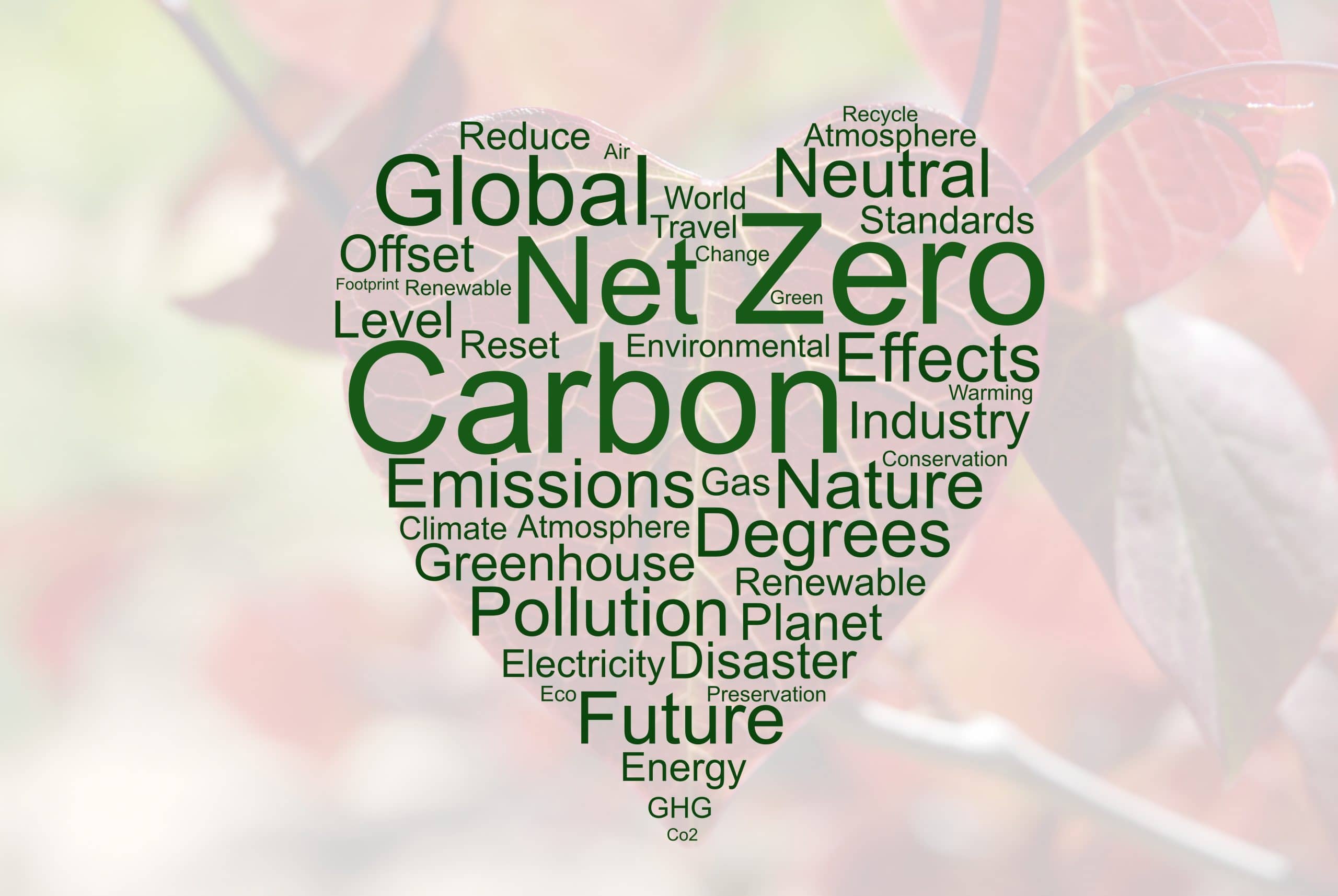
Sandpiper Health Announces Senior Appointments

Tackling Obesity in Asia Pacific
A Major Day for Democracy as Indonesia Goes to the Polls
February 2024
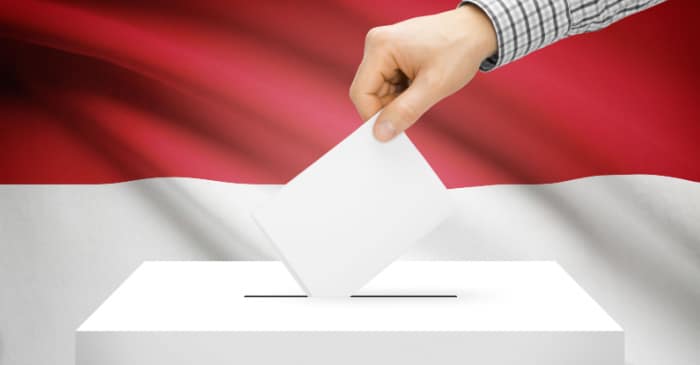
This article is part of Sandpiper’s Public Affairs Tracker content series on government relations in Asia-Pacific. Our Public Affairs team provides in-depth monitoring and analysis on emerging political and macroeconomic issues, helping companies formulate appropriate strategies for challenging business environments. Click here to explore other recently published articles.
Indonesia, the world’s fourth-largest country by population and third-largest democracy, is about to hold the biggest single day of voting on the planet. Over 200 million voters are expected to head to the polls on 14 February, in a general election that will determine not only the next president and vice president, but also legislators and councillors of various levels across the country.
For the business community, this is definitely one to watch. Indonesia’s recent market trends indicate a resilient, cautiously optimistic economic landscape. The country has managed to maintain moderate growth, buoyed by strong domestic consumption and a growing middle class, despite global economic uncertainties and the effects of the pandemic. However, investors and businesses are keenly aware of the need for structural reforms to address bureaucratic inefficiency, corruption and infrastructural gaps that can hamper economic growth. The next administration will be instrumental in determining economic reforms in critical areas, affecting the investment climate, ease of doing business, and FDI flows.
The upcoming elections could be a turning point in addressing these challenges. As businesses and investors keep a close watch on developments, understanding the historical context of democracy in Indonesia and the candidates involved is crucial for appraising market implications.
Political Context
Since independence in 1945, Indonesia’s political journey has been marked by significant shifts — from its early years of parliamentary democracy to the authoritarian Suharto regime, lasting over three decades until 1998. The fall of Suharto ushered in an era of significant political, social, and economic reforms, which saw the introduction of direct presidential elections that have since become a cornerstone of Indonesian democracy.
This transition has not been without challenges. Corruption, ethnic and religious tensions, and separatist movements have all tested the resilience of Indonesia’s democratic institutions. However, recent decades have seen the emergence of an increasingly vibrant civil society that has played a crucial role in holding government to account and advocating for further reforms.
This election will see two of the three candidates jostling to position themselves as standard bearers of Joko Widodo’s legacy. Building on the outgoing president’s immense popularity, all three campaigns demonstrate at least some elements of continuity, though Anies Baswedan’s platform has been more explicitly reformist and critical of the current administration. Significant differences do exist, and each contender brings a colourful political biography to the table. An understanding of the key figures involved is essential.
The Incumbent
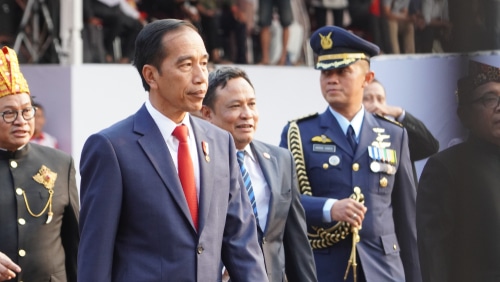
Joko Widodo, commonly known as Jokowi, is the incumbent President of Indonesia, in office since 2014. Known for his humble beginnings and approachable leadership style, Jokowi has focused on infrastructure development, bureaucratic reform, and investment in human capital throughout his tenure. The secular-nationalist Indonesian Democratic Party of Struggle (PDI-P), which brought him to power, is one of the country’s largest. Under Jokowi’s leadership, Indonesia has seen a revolution in mass rapid transit infrastructure and regional development initiatives, boosting economic growth and reducing inequality.
Though unable to run for a third term, Jokowi continues to exert his influence over the 2024 election, essentially playing the role of kingmaker. His brother-in-law, until recently chief justice of the Constitutional Court, was behind a decision to waive the age restriction for vice-presidential candidates, allowing Jokowi’s own son, Gibran Rakabuming Raka, to become Prabowo Subianto’s running mate. This controversial move has been interpreted as a stamp of approval for Prabowo’s candidacy, as well as a way for Jokowi to snub his own party, the PDI-P, which is endorsing Ganjar Pranowo for president.
The 2024 Candidates
Prabowo Subianto is a former army general and leader of the Great Indonesia Movement Party (Gerindra). A staunch nationalist, Prabowo has been a key player in Indonesian politics for decades, running for the presidency in 2014 and 2019, both times against Jokowi. His political platform has emphasised strong national defence, energy self-sufficiency, and economic sovereignty. Prabowo remains a polarising figure whose military past has been marred by allegations of human rights abuses. Still, he enjoys a significant following, particularly among those who favour a more assertive, “authoritative” approach to governance. More recently, Prabowo has tried to cultivate a softer, grandfatherly image – albeit with dubious success.
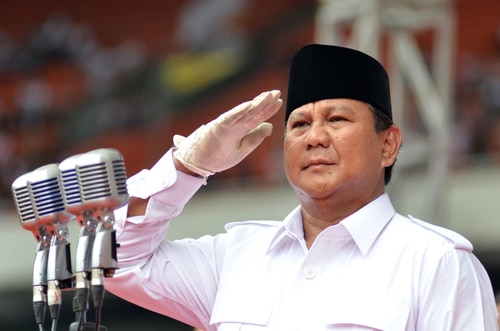
Ganjar Pranowo, a rising star in Indonesian politics, is Governor of Central Java. Known for his effective, transparent governance style, Ganjar has gained popularity for his hands-on approach to problem-solving and commitment to improving public services. His governorship has been marked by significant advances in education, healthcare, and infrastructure provision in Central Java, making him a prominent figure in national politics as well. As the PDI-P’s candidate, he enjoys the support of Indonesia’s former president, Megawati Sukarnoputri – though this endorsement may prove to be a double-edged sword.
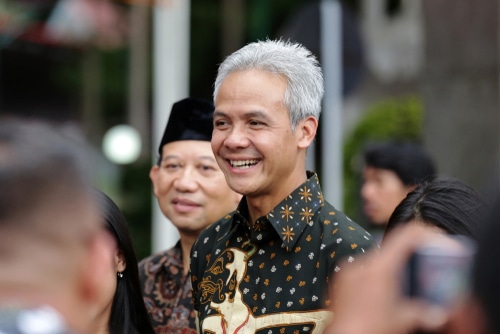
Anies Baswedan, former Governor of Jakarta, is a respected academic and educational reformer, who has in the past been associated with conservative Islamic groups. His tenure as governor was marked by several populist policies, including improvements to public education and the expansion of social assistance programmes. Anies is known for being an eloquent communicator and intellectual, endearing him to both middle-class and traditionalist Islamic constituents. However, he has also been criticised for indulging a form of identity politics that has marginalised non-Muslims. He is running alongside Muhaimin Iskandar, chairman of the National Awakening Party – Indonesia’s largest Islamic party.
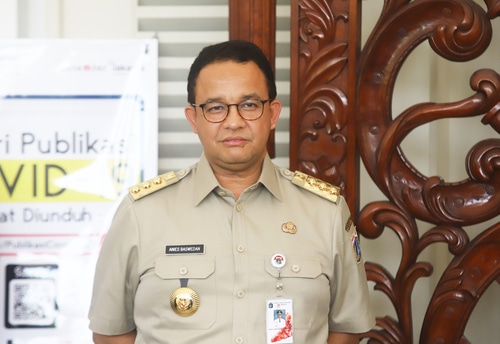
Looking Ahead
Prabowo is currently the clear frontrunner. A recent survey by the ISEAS – Yusof Ishak Institute in Singapore showed 58 per cent of respondents either “likely” or “very likely” to vote for him, compared to the 41 and 31 per cent respectively expressing an inclination to vote for Anies and Ganjar. The Economist is currently showing polling averages of 53, 20, and 19 for Prabowo, Anies and Ganjar, respectively. If Ganjar falls out of the race, a run-off between Prabowo and Anies may be on the cards for late June – assuming that Prabowo does not win outright in the first round.
All three candidates share extensive areas of policy overlap, but perhaps the most substantial differences lie in their divergent perspectives on international trade and the role of government in the economy. The Anies campaign argues for limited government and more private sector-powered growth, alongside a liberal trade policy. Conversely, the Prabowo camp has advocated a more state-directed economic policy, complemented by a protectionist approach to international trade.
Drawing Conclusions
Indonesia is by far the largest economy in Southeast Asia. The direction taken by its next leadership will not only shape the country’s economic trajectory but could also influence wider regional economic stability and growth. For businesses, staying informed and agile in an evolving political and economic landscape will be key to navigating the opportunities and pitfalls that lie ahead in this dynamic region.

